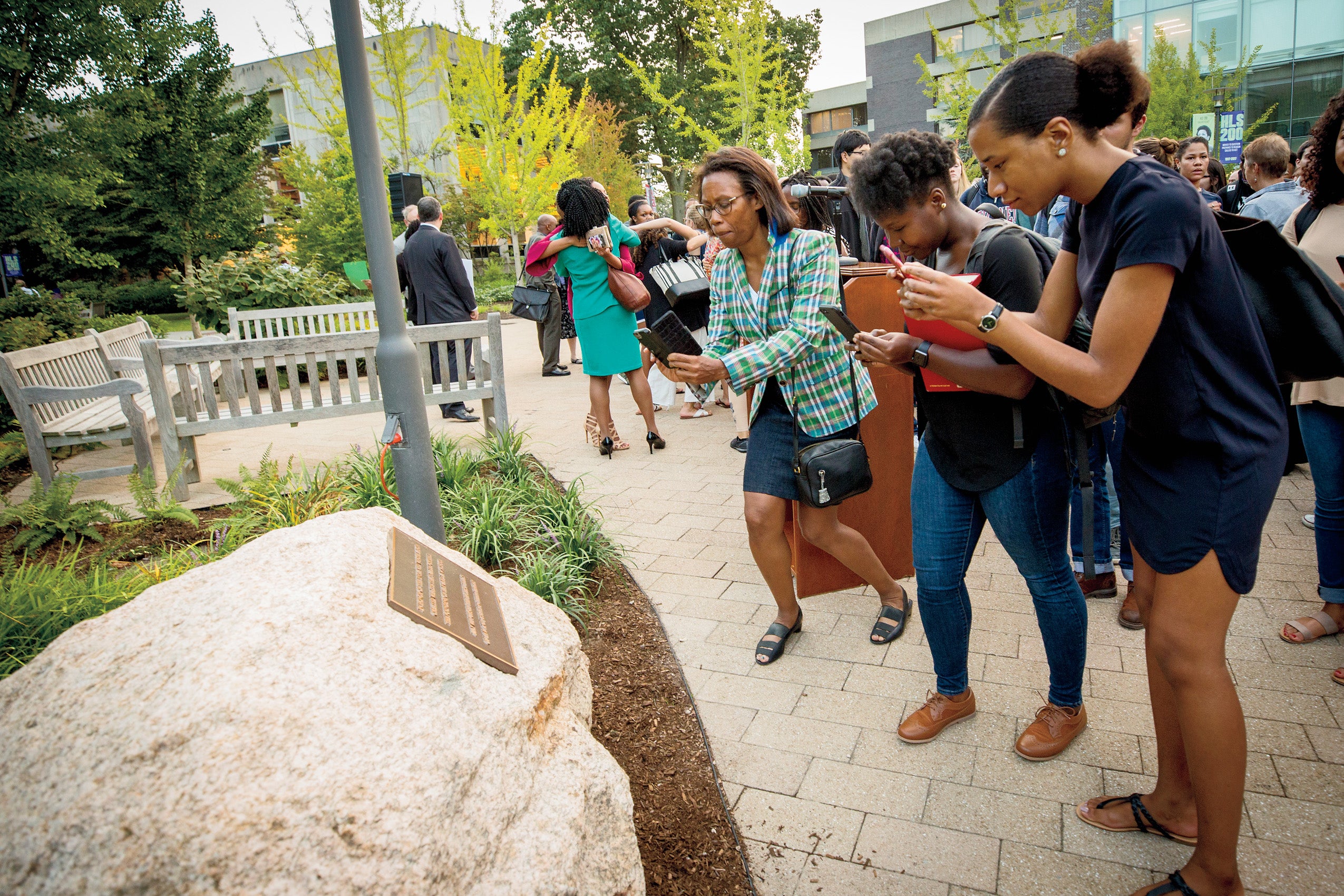On a clear, windy afternoon in early September at the opening of its bicentennial observance, Harvard Law School unveiled a memorial on campus. The plaque, affixed to a large stone, reads:
In honor of the enslaved whose labor
created wealth that made possible
the founding of Harvard Law School
May we pursue the highest ideals
of law and justice in their memory
Harvard Law School was founded in 1817, with a bequest from Isaac Royall Jr. Royall’s wealth was derived from the labor of enslaved people on a sugar plantation he owned on the island of Antigua and on farms he owned in Massachusetts.
“We have placed this memorial here, in the campus crossroads, at the center of the school, where everyone travels, where it cannot be missed,” said HLS Dean John Manning ’85. Speaking to a gathering of more than 300 students, faculty and staff, he said: “Our school was founded with wealth generated through the profoundly immoral institution of slavery. We should not hide that fact nor hide from it. We can and should be proud of many things this school has contributed to the world. But to be true to our complicated history, we must also shine a light on what we are not proud of.”
Harvard University President Drew Faust and HLS Professors Annette Gordon-Reed ’84 and Janet Halley also spoke at the unveiling, which followed a lecture focused on the complicated early history of the school.
“How fitting that you should begin your bicentennial,” said Faust, “with this ceremony reminding us that the path toward justice is neither smooth nor straight.”
The inscription was drafted by Gordon-Reed, a Pulitzer Prize-winning historian and biographer of Thomas Jefferson. She observed that memorials usually name people. In this instance, she said, we will never know all of the names of all the Africans enslaved in Antigua and in the United States whose labor created wealth that helped start the law school.
The words on the plaque, she said, “are designed to invoke all of their spirits and bring them into our minds and our memories with the hope that it will spur us to try to bring to the world what was not given to them: the law’s protection and regard, and justice.”
Halley, holder of the Royall Professorship of Law, who has spoken frequently about the Royall legacy, read aloud the names of enslaved men, women, and children of the Royall household from records that have survived, “so that we can all share together the shock of the sheer number,” she said, “and a brief shared experience of their loss.”
“These names are the tattered, ruined remains, the accidents of recording and the encrustation of a system that sought to convert human beings into property,” she said. “But they’re our tattered remains.”
